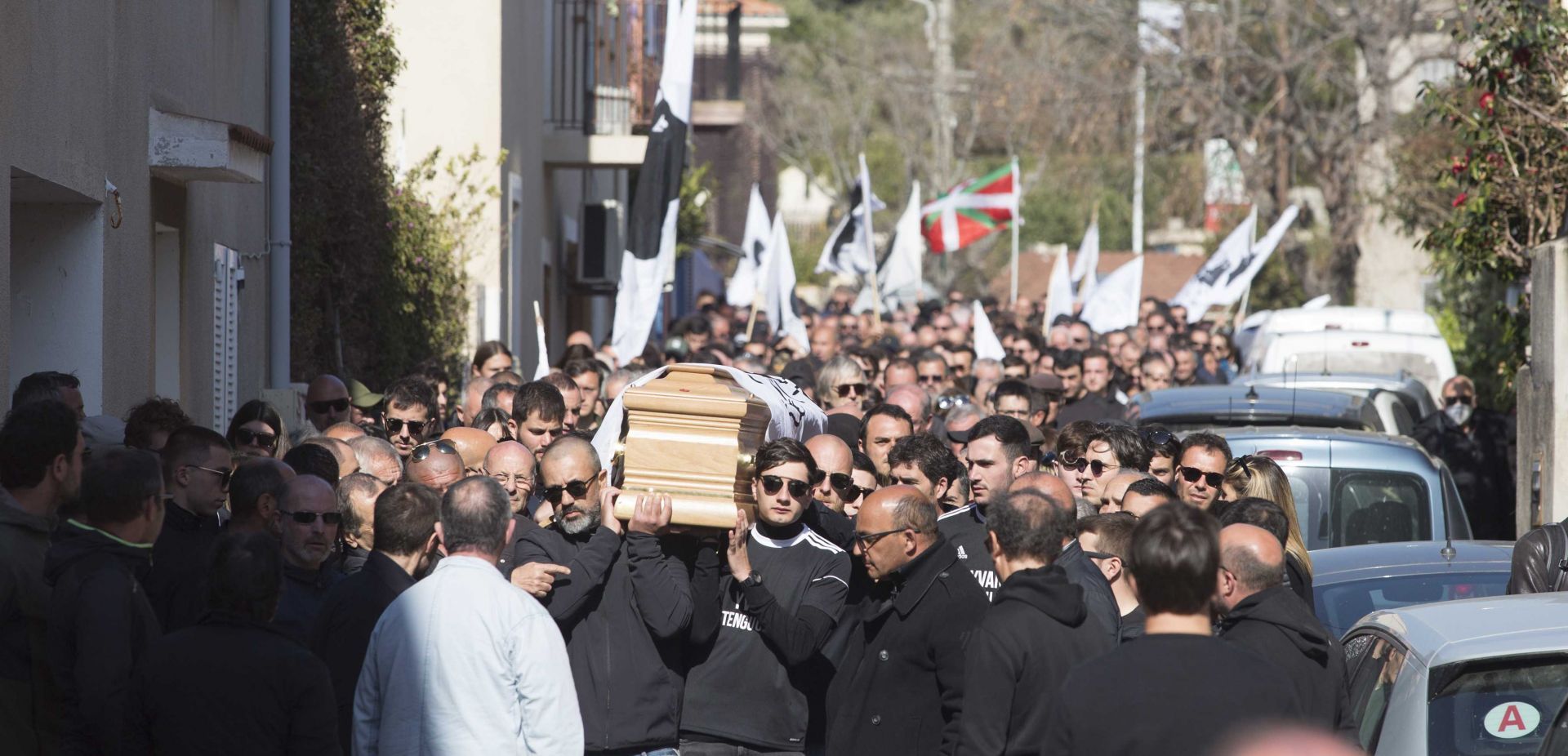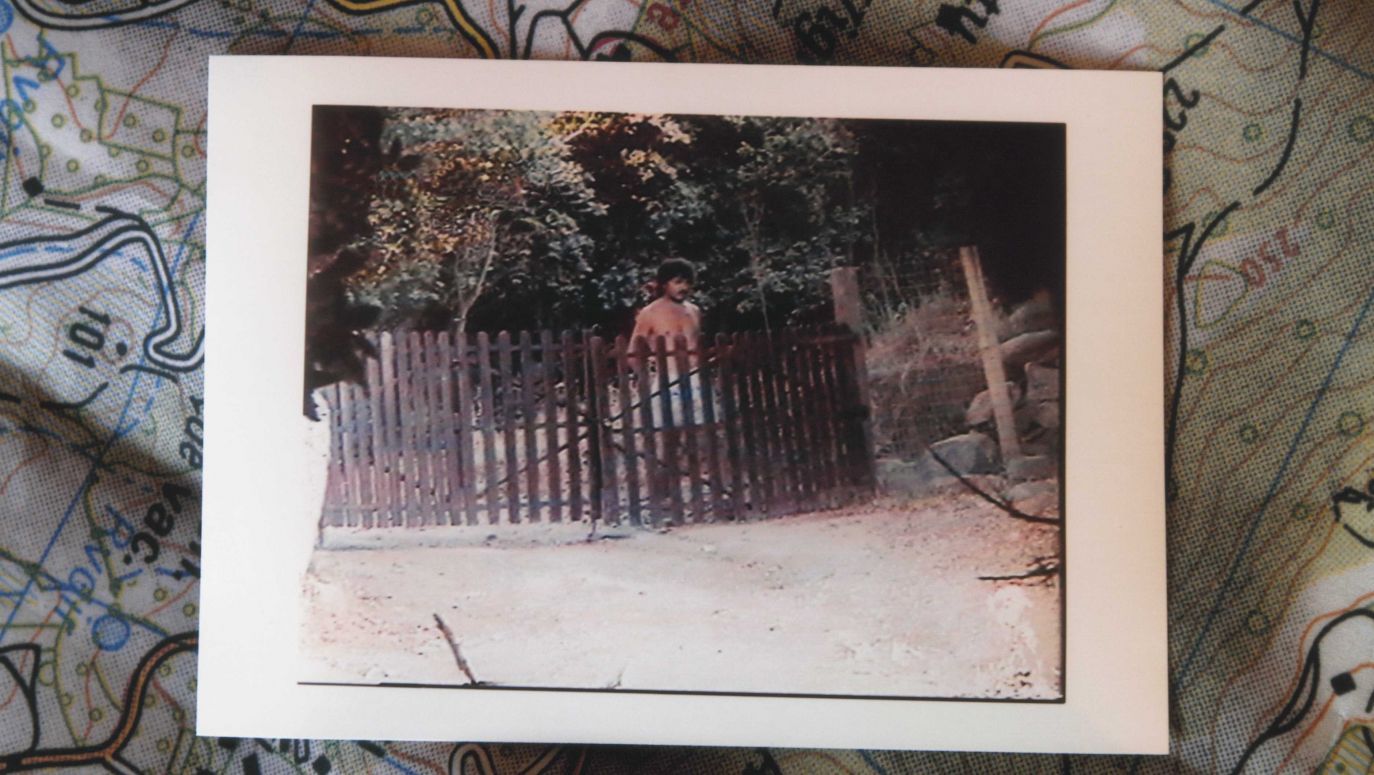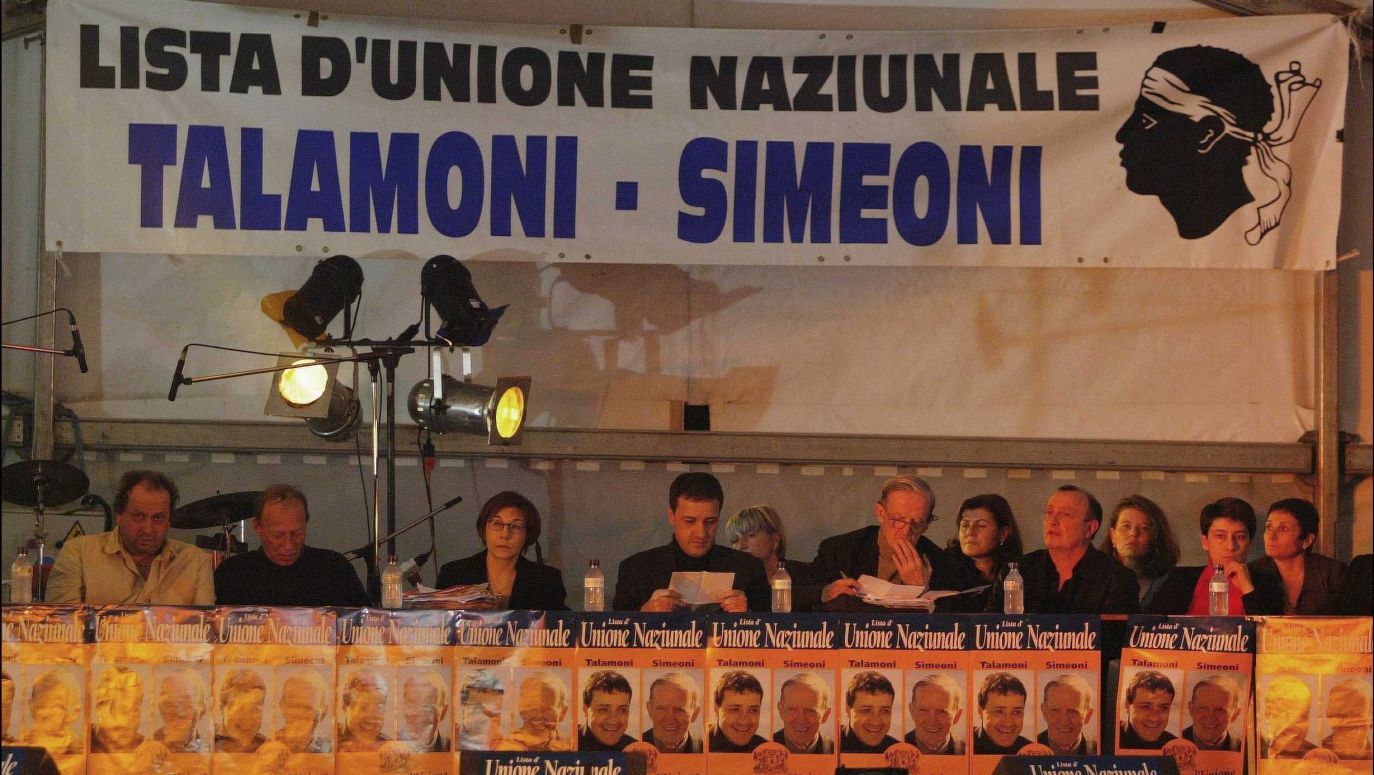Dealings of the ruling class with political prisoners: the French election campaign with murder in the background
06.04.2022
Even though he seems to have the win in the April presidential elections in his pocket, Emmanuel Macron conspired with Corsican nationalists to try to buy their votes. His plans were thwarted by a Cameroonian jihadist who killed a Corsican behind bars. The latter was serving a sentence for terrorism. This story, both bizarre and amazing, reveals the secrets of behind-the-scenes politics.
It was 10:15 AM on Wednesday, March 2nd, when Frank Elong Abé, a Cameroonian immigrant convicted of jihad in Afghanistan in 2015, entered a prison gym at a maximum-security prison in Arles, near Marseille. Despite being granted the status of a prisoner under special supervision, he was hired as a cleaning staff, which came with certain privileges: he received a salary, organized his own work, and was able to move freely around the facility. As usual, he was accompanied by two guards, who, this time, surprisingly, left him alone with another prisoner, busy with his daily exercises.
As soon as the doors behind guards closed, Frank Elong Abé launched his fists at his fellow prisoner, who, surprised by the attack from behind, was easily overpowered. The attacker jumped with both feet on the victim’s back, threw a plastic bag over his head, and subsequently started strangling him with his bare hands, and a towel. The entire scene was recorded on surveillance cameras. The attack took eight minutes, and for over a minute the attacker was crushing his victim's trachea with his foot. This clearly brings to mind the case of George Floyd ...
The men were separated by prison guards, but the beaten man's condition was already critical, despite attempts to resuscitate him. At first, the media even reported his death only to issue a correction that he was in a state of “clinical death”. He remained so for the next three weeks, and finally passed away on March 21, without regaining consciousness.
Why did the media become interested in what seemed like an ordinary prison fight, usually featured in the last pages of a paper? The answer is simple: both the attacker and the victim were no ordinary characters.
A jihadist and a Corsican legend
The attacker was a 36-year-old Franck Elong Abé, one of those millions of African immigrants to France who flooded in over the last half-century, a living proof that republican integration was not working. Born in Cameroon, he lived in Normandy, where, in his youth, he converted to radical Islam and subsequently traveled to Afghanistan to fight for jihad. In 2012, he was captured by the US military and after a two-year stay at the Bagram base, an Afghan Guantanamo, he was deported to France. Here, in 2016 he was sentenced to 9 years in prison for participating in a terrorist group. In 2015 his sentence was extended by four years, following an escape attempt.
His entire career behind bars was full of notorious incidents such as acts of insubordination and aggression, attempted suicide, arson in a cell, and even taking a hostage - a prison nurse. Franck Elong Abé was being transferred from one prison to another, with increasingly stringent security. When in 2019, during month-and-a-half detention in Condé-sur-Sarthe he provoked 14 incidents, he was finally sent to Arles.
By comparison, the prisoner he attacked was simply exemplary: polite, calm, and well-mannered, with no incidents, a model prisoner from the point of view of every guard. The 61-year-old Corsican was none other than Yvan Colonna, perhaps the most famous political prisoner in France, sentenced to life imprisonment for the murder of the prefect of Ajaccio back in 1998. He was an emblematic figure, almost pop culture-like.
No wonder then that the murder not only caused a stir in the media but also touched the general public. There were voices that the government had deliberately incited the Islamist against the Corsican. It is important to know that despite the odium of a conviction for a serious crime, Colonna had his supporters and for years was a symbol of the Corsican case. There was probably never a demonstration of nationalists without the banner "Gloria a te, Yvan", and you can bet that from now on the slogan "Statu francese assassinu" will accompany it.
Nationalists, regionalists, autonomists, independentists, radicals, terrorists - to understand the trends and tendencies of Corsican patriotism, one needs a fairly large sheet of paper, color-coding markers, a lot of time, and a lot of patience. Still, let us try to summarize this issue in a few words
Blue nights
Corsica, a Genoese territory, after a brief period of independence, fell into French hands under Louis XV, just in time for the future Emperor Napoleon Bonaparte to be born (in 1769) as a subject of the French king. From then on, the island shared the fate of France, including the Jacobin-republican uniformity aimed at the language, culture, and identity of all minorities living on the French territory.
It was only in the second half of the 20th century that the Corsican national consciousness awakened, followed by the will to establish partial or even complete independence from the metropolis. In 1976, this tendency became radical with the emergence of the CNLF (Corsican National Liberation Front), a group that used militant methods. The national idea was carried on by the wave of the worldwide fashion for decolonization, when, after the victorious campaign of the Algerian NFL against France, various local National Liberation Fronts (the armed groups within the oppressed minorities) started emerging all over the world. However, unlike other nationalisms of small nations in Europe, Corsican patriotism never changed into Marxism or left-wing revolutionism, it was rather an identity movement that maintained an internal ideological pluralism.
The Corsican NLF for decades to come was to enter the local and national imaginarium:: press conferences of armed hooded figures held at night, with the national flag featuring a head of a Maur in the background; "blue nights" i.e. simultaneous bombings across the island; ever-new groups splitting from the main movement, with increasingly longer and more complex names.
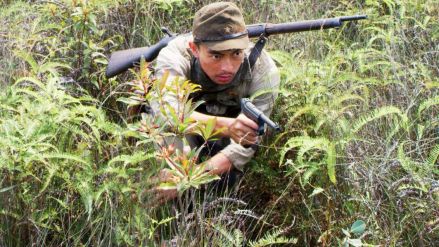
Hippie declared that he was after “Lieutenant, the panda and the Yeti – in that order”.
see more
Despite its pompous and boisterous rhetoric, Corsican terrorism remained less radical than its Basque and Irish older brothers. The targets of the night attacks were buildings symbolizing the "French invader" or the properties of the "French colonizers", and the inevitable fatalities were either the incidental and accidental damage, purposeful executions of local mafia members, or the fruits of a fratricidal war between rival groups, often based on the rivalry between island clans, impossible to understand for outsiders.
Chasing the shepherd
Therefore, the greater shock was the execution of Prefect Claude Erignac, the representative of the French state in Corsica. He was killed on the evening of February 6, 1998, struck with two shots to the neck and two more bullets to the head while he was already on the ground. He was attacked after he left a classical music concert at a theater in the center of Ajaccio. It was a thing previously unseen in the history of Corsican terrorism, which, apart from one unsuccessful murder attempt on a general in 1976, never directly targeted the lives of the "occupier’s" officials.
For months, the media followed an investigation, which after many twists and turns, finally established the main suspect. The attacker was said to be Yvan Colonna, the son of a former Socialist MP, and a regular Corsican activist, previously suspected of being involved in one of the thousands of bombings that have plagued Corsican nights since 1976.
The media spent the next four years excited by the hunt for the suspect conducted by all French services around the world, meanwhile, Colonna was hiding peacefully in a shepherd's hut amidst the symbolic Corsican maquis.
Maquis is simply lush and hard-to-reach vegetation that covers most of the mountainous island. Maquisards, the French partisans of the Résistance, took the name from this noun, and the expression "prendre le maquis" means "go to the forest", "hide".
Yvan Colonna, named after his hiding place "the shepherd of Cargèse", was not captured until four years later, in July 2003. Announcing his success, then-Interior Minister Nicolas Sarkozy said to the cameras that "the killer of the prefect Erignac had been caught". A few years later, the immunity of the President of the Republic will save Sarkozy from a trial for violating the principle of the presumption of innocence.
The trial of the alleged killer turned into yet another soap opera that fed the media over the years. Subsequent twists and turns, withdrawals of accusations by other members of the group, contradictory testimonies, lack of evidence, media pressure, abuses by the successor of the prefect, etc. - all of this made regular headlines over the years until the final verdict in 2013, when Colonna, who maintained his innocence to the end, was sentenced to life in prison.
He was serving his sentence in several prisons, before spending the last ten years in Arles. It is there that he was attacked by an immigrant Islamist who has decided to avenge the honor of Allah because he reportedly heard "blasphemy against the Prophet" from the Corsican.
The prosecution established the Islamist nature as the reason behind the attempted murder. "Once again, Islamic fanaticism has become the cause of terrorist crimes in our country," said the prosecutor for terrorism Jean-François Ricard.
Negotiations in prison
If the case ended here, it could be considered an interesting anecdote and put away. However, the attack on Yvan Colonna provided an unexpected opportunity to reveal the secret negotiations between Emmanuel Macron and the Corsicans.
The well-informed satirical weekly “Le Canard enchaîné” revealed that two weeks before the attack, Yvan Colonna had been visited by two MPs from the presidential majority group. Then the gentlemen went to meet two of Colonna's associates, also sentenced to life imprisonment for their participation in the attack on prefect Erignac. The men were serving their sentences in a small prison in Poissy, in the Paris region.
What was behind a visit of this rank? According to the weekly, the Elysée Palace negotiated with the Corsican nationalists who have ruled the island since 2018. The president's staff spoke with Gilles Simeoni, a son of Edmonde Simeoni, a prominent senior member of the modern Corsican independence movement and a chairman of the Corsican Executive Council. The Council manages the island's hybrid self-government balancing the status of a department, region, and an overseas territory.
Support for sovereignty?
You have to know that the CNLF laid down its arms in 2014 and chose the path of democracy. Despite the fragmentation of various groups, and the divisions between the pro-independence radicals and the autonomists, who were more inclined to compromise, as soon as four years later the CNLF managed to seize the power on the island. They set themselves two goals in negotiations with the metropolis: one symbolic - the repatriation of Corsican political prisoners from the continent to the island, closer to home, and the other political - full political autonomy of the island.
The problem is that this political goal stood in stark contrast to the most sacred principle of unity and indivisibility of the Republic, a principle which for years has made the Republic hostile to all kinds of regional differences, not only political but even cultural.
From 1789 to 1982, Corsican independence could therefore be at best geographical. Only after the left and François Mitterrand came to power, the specific case of Corsica within the Republic was recognized by the authorities; timidly at first, and then with a series of institutional reforms (1982, 1991, 2002, and 2015) which granted additional competencies to the island.
Special status? Maybe so, but still there was no mention of autonomy. The possible granting of local privileges motivated by identity is perceived by all politicians, from the communist party to socialists and center-right, to Marine Le Pen, as a threat of separatism and an attack on republican values. In August 2000, the mere mention of the existence of the "Corsican people" has led to a government crisis: in an act of protest, socialist Minister Jean-Pierre Chevènement left Lionel Jospin's government.
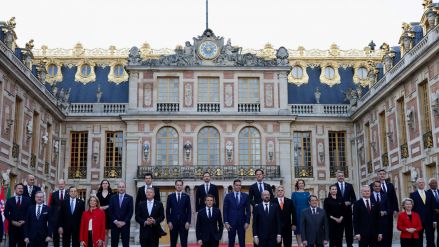
Without a strong sense of national identity, the Ukrainians would not have the spirit to stand up to the Russian invaders.
see more
The French political class has also reacted with a unanimous outrage to the news of the dealings of Macron's staff with the Corsicans.
According to the sources of "Le Canard enchaîné", the deal was simple: in return for the support of the Corsican nationalists in the presidential elections and the call to vote for Macron, the latter was to fulfill the aforementioned mentioned postulates, including the most controversial one - political autonomy.
Corsica votes for the right
The murder of Yvan Colonna by an Islamist ruined these plans. Gilles Simeoni called this event "the logic of a state revenge", as the conviction that the French state was responsible for, or even guilty of the death of an idealized fighter brought tens of thousands of Corsicans to the streets. The intensity and violence of demonstrations were so big (several hundred Molotov cocktails in less than a week, dozens of injured ...) that it was only the war in Ukraine that finally took over the headlines.
Interestingly, the lawyers of the "shepherd of Cargèse" from the time of his many trials, resurfaced years later, and now play an active role in the negotiations. The aforementioned Gilles Simeoni, the head of the Corsican local government, was Colonna's lawyer at the time, as was Eric Dupond-Moretti, one of the most media-friendly lawyers in France, who today serves as a ... Minister of Justice! Maybe this old acquaintance was revisited to organize hastily negotiations? Who knows ...
The question that may arise is: why did the negotiations start now, a few weeks before the presidential election, when during the last five years in power, the government has made numerous promises, only to put them aside, unfulfilled? Did Emmanuel Macron decide that he needs the votes of the Corsican electorate?
From a mathematical standpoint, this doesn’t add up. 230 thousand voters are nothing compared to 47 million Frenchmen who can vote. Is it possible that Macros is unsure of the victory hailed by all of the polls? It is known that the Elysee Palace has a different set of data than those meant for the media and that they could be less optimistic than the 30% in the first round. Still, whatever the calculations it is not the Corsican electorate that can set the scales in favor of the president.
Macron's strategy is strange because the Corsicans typically vote for the right; it is not at all certain that the votes of the leadership will be enough to set the local sympathies in favor of the head of the "French state" whom they used to insult at rallies and demonstrations. Especially considering that five years ago they treated him to an electoral beating.
In 2017, in the first round of the presidential election, Macron gained less than 18.5% of the vote in Corsica, while Marine Le Pen won decisively by gaining almost 27.9%. On a national scale, let us recall that it was the other way around: it was Macron who defeated the patriots’ leader 24% to 21.3%. Meanwhile, in Corsica, he did not even come second, giving way to the right-wing candidate François Fillon (25.5%). In the second round, it was similar: while 2/3 of the French (66%) voted for Macron, among the Corsicans it was just a bit more than a half (51.5% for Macron, and 48.5% for Marine Le Pen). Is it wise to believe that this time it will be different?
Maybe Macron is motivated by something else? Maybe he just wanted to achieve some spectacular success so that it could be covered by the media and serve as a distraction from other problems? Maybe someone from the president’s entourage thought that the Corsican issue is just such a thing? If so, the plastic bag of a Cameroonian jihadist and Vladimir Putin’s sudden decision to invade Ukraine ruined his plans.
A poor poker player
In any case, the concessions towards the Corsicans are avalanche: a few days after the incident, while Colonna was still in a coma, Prime Minister Jean Castex released the Corsicans from the status of prisoners under special surveillance (DPS). This was to allow their transfer to the prison in Borgo, closer to home. Subsequently, then-Interior Minister Gérald Darmanin hastily visited the island and announced "status reviews up to and including autonomy", and the president himself began to mumble about a revision of the constitution.
Will this suffice? The death of Yvan Colonna will surely continue to catalyze riots which will mobilize the police and other forces needed to maintain the immigrant suburbs of large cities relatively peaceful.
Currently, the entire Macronistic elite behaves like a panicked player who feels forced to put the last-resort aces on the table, although he was hoping for a bigger win. The consent to extend the political autonomy of the island and the easing of the conditions for political prisoners, for which Macron's staff wanted to obtain support in the upcoming elections, have now become bargaining arguments meant to cool down emotions and defuse the situation which is about to explode.
No one can think seriously about electoral support at this point. Macron is certainly not a bridge player or a poker player, and it can be inferred that even a game of checkers is beyond his ability.
– Adam Gwiazda
– Translated by Sally Jastrzębska
